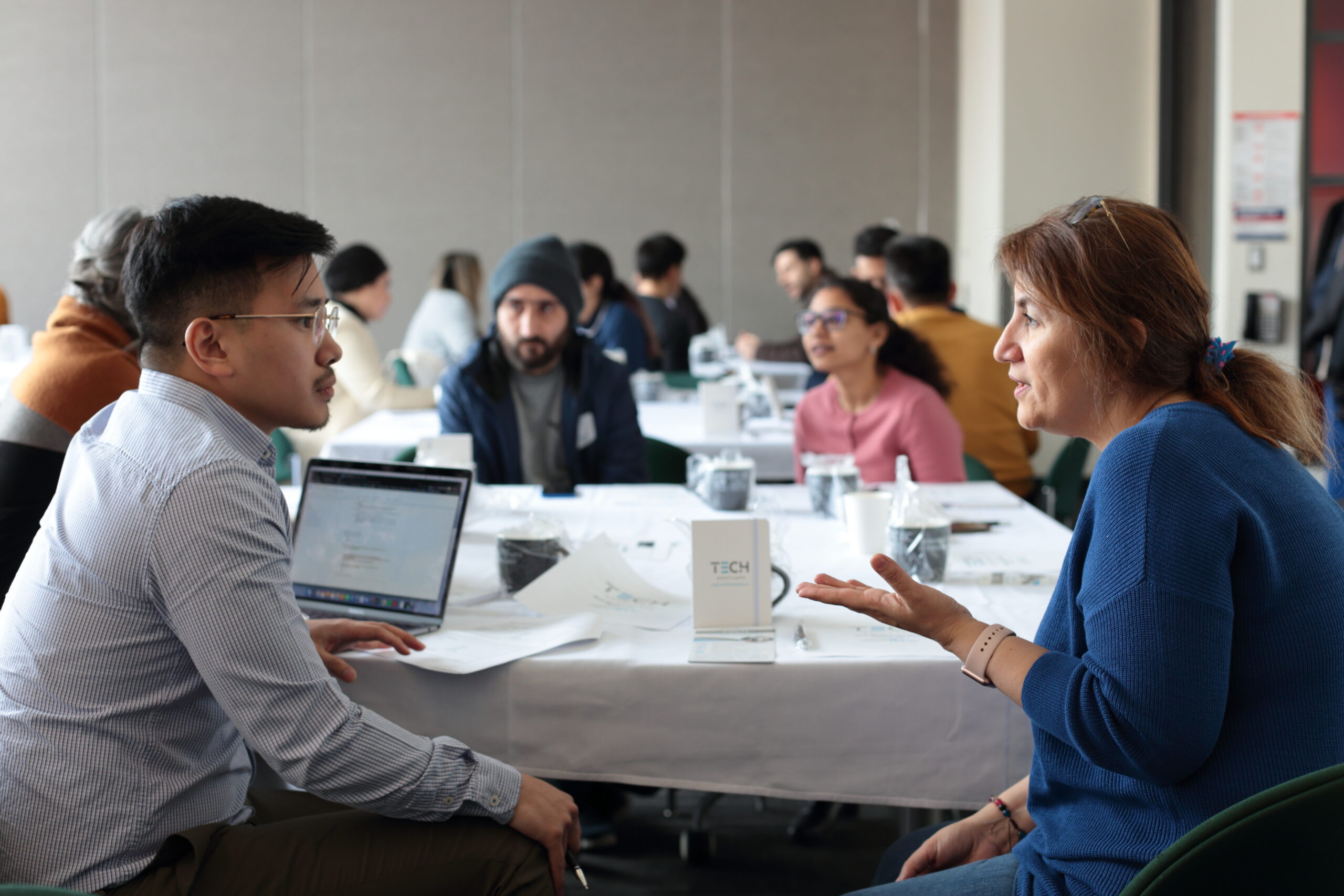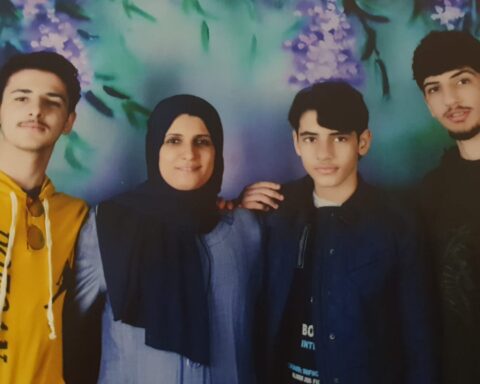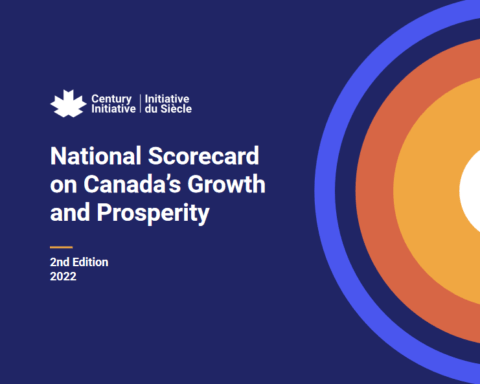Canada is among one of only three countries in the world that assist immigrants with settling in their new country well before they leave their native lands, along with Australia and New Zealand, according to leading researchers.
It’s called “pre-arrival services”.
But after 23 years of providing these services, are they worth the millions of dollars being spent on them? Are they effective? Should they be continued?
Their record to date is mixed: while service providers point to a few gaps but feel the approach is working, New Canadian Media’s interviews with newcomers tell otherwise.
The extent of settlement services in Canada is relatively unique in the world, according to Anna Triandafyllidou, the Canada Excellence Research Chair in Migration and Integration at Toronto Metropolitan University, and Stein Monteiro, Senior Research Associate for the program, as well as Nafiz Zaman Shuva, an assistant professor at the City University of New York, who were contacted by NCM.
Last May, the government doubled down on pre-arrival services by providing $65 million in funding for all settlement services and extending the programs until 2025.
Immigration, Refugee, Citizenship Canada (IRCC) in part justified the extension with findings from the Newcomer Outcomes Survey which found 96 per cent of non-refugee pre-arrival clients used at least one settlement service. Additionally, 95 per cent of clients who received a needs assessment said the referrals to services and organizations and linkages were very useful.
However, the services are relatively unknown. A 2023 Settlement Outcomes Report found only 68 per cent of newcomers were aware of the pre-arrival services available to them, despite a recommendation five years earlier calling for the agency to promote its benefits.
Newcomers to Canada say they’re being let down by vital job-readiness programs called pre-arrival services, which experts say highlights the need for more staff and better advice for potential immigrants before they apply.
Experts explained that federally funded pre-arrival services, which prepare immigrants for the job market before they land in Canada, increases the likelihood of employment.
But some service providers get overwhelmed by the number of newcomers, and newcomers only receive information on what to expect in Canada after they’ve already applied for permanent residency.
Pre-arrival webinars with 30-50 attendees offer general information that doesn’t address individuals’ specific needs, according to Carolina Castillo Escobar, who came to Burnaby, B.C. from Ecuador in March 2023.
Most of the advice offered in the webinars could be found online, Escobar said, who used the free YMCA-affiliate Next Stop Canada pre-arrival service.
Escobar said she expected a more personalized approach.
Understaffing at pre-arrival services can cause a disconnect between the overall success rate and disappointment some immigrants feel, according to Henry Akanko, director of Hire Immigrants Ottawa.
“Those expectations are valid, but the reality is, the capacity isn’t at the same level to be able to support that,” Akanko said.
Pre-arrival services should receive more funding, Akanko said, considering the federal government is planning on bringing in 1.5 million immigrants into the country over the next three years.
It’s not a question of money, according to Patrick Mackenzie, the CEO of the Immigrant Employment Council of BC.
Settlement services need to find innovations to meet the needs of newcomers by either helping prepare them more effectively or informing them how the preparation they already offer is useful, explained Mackenzie.
Right now, pre-arrival services don’t always prepare immigrants the way they’re supposed to, Mackenzie said.
But another layer of information services could address the capacity issue.
Prospective immigrants should be offered advice before they apply to Canada, instead of waiting until their arrival to find out if the country is suited for them, Mackenzie suggested.
Mackenzie said that would ease the demand that pre-arrival services currently face.
“I don’t know if we can ever fully meet demand,” Mackenzie said.
Mock Interview Missed
Escobar came to Canada under the Express Entry Skilled Workers Program and is now a permanent resident, with eight years of experience as an international policy analyst in Ecuador, Spain, and Sweden.
She submitted more than 100 job applications to Canadian employers before arriving in the country, but only landed one interview.
Despite offering her a mock interview, her pre-arrival service was unable to help her prepare due to a two-week waiting period.
“I could not opt for the mock interview because my official interview was scheduled in two days,” Escobar said.
These services sometimes experience a surge in people signing up, overwhelming the organization’s ability to meet their clients’ needs, Akanko said.
Akanko said Escobar may have been caught up in a surge, which delayed her access to a mock interview.
“Some of the agencies, rather than to use staff to do these mock interviews, also rely on volunteer members to conduct these mock interviews,” Akanko said, which further decreases a service’s reliability.
Artificial intelligence-enabled virtual reality is being used for mock interviews by a company working with the Immigrant Employment Council of BC, Mackenzie said.
The chatbot can walk through the interview questions with the newcomer, and offer feedback on their answers, explained Mackenzie, who argued that technology has a role to play in the capacity issue.
Horrific Advice
Sabeen Ali (a pseudonym to protect her identity) was told by a pre-arrival service to remove seven years of their work experience.
Ali arrived in Toronto in April 2023 under the Express Entry Skilled Worker Program with work experience at multinational brands in the UK, Singapore, Hong Kong, and India.
“First thing I was told was to tone down my resume,” Ali said. “I will just make it as basic as possible so that people think that they can hire me and they are not intimidated by me.”
That advice was wrong, inappropriate, and detrimental to Ali, both Akanko and Mackenzie said.
Companies receiving funding from the federal government should not invalidate someone’s work experience before they even arrive in the country, according to Mackenzie.
“Horrific advice, I think it’s an absolute travesty that someone’s told that,” Mackenzie said.
No one should devalue themselves when applying for a job, Akanko said.
Further to the point, rejecting a job applicant because they are overqualified runs contrary to human rights rulings where Ali was applying for jobs, Akanko pointed out.
“The Ontario Human Rights Commission has made it clear that employers can’t use the basis of overqualification not to recruit somebody. Individuals apply for jobs for all manner of reasons,” Akanko said.
Ali holds two postgraduate degrees in business, one from India and the other from a U.S. school.
She is still waiting for an immigration services mentor to respond and help her navigate the Canadian job market.
Statistics Show Success
Akanko and Mackenzie agree pre-arrival services have demonstrated success through participants being more likely to find jobs in Canada than newcomers who don’t use those services.
Immigrants who use pre-arrival services are even paid at a higher rate than non-participant new arrivals, added Akanko.
Among the clients of ACCES Employment 30 per cent land a job pre-arrival and 60 per cent secure employment within three months of landing, according to Sue Sadler, the company’s Senior Vice President of Services and Program Innovation.
IRCC collaborates with 15 organizations across Canada to offer two types of pre-arrival services to approved permanent residents.
According to the IRCC, 96 per cent of non-refugee pre-arrival clients accessed at least one settlement-related service online.
This story was updated on Jan. 25, 2024, to clarify the positions held by Anna Triandafyllidou and Stein Monteiro.
Tazeen is based in Mississauga and is a reporter with the New Canadian Media. Back in Pakistan where she comes from, she was a senior producer and editorial head in reputable news channels. She holds a master’s degree in Media and Communication and a certificate in TV program production from Radio Netherlands Training Center. She is also the recipient of NCM's Top Story of 2022 award for her story a "A victim of torture, blogger continues fight for human rights in Pakistan"
William Koblensky Varela is a journalist who reports on local news, finance, and politics. He has worked for Metroland Media, BNN Bloomberg, and Carbon Pulse among others.






